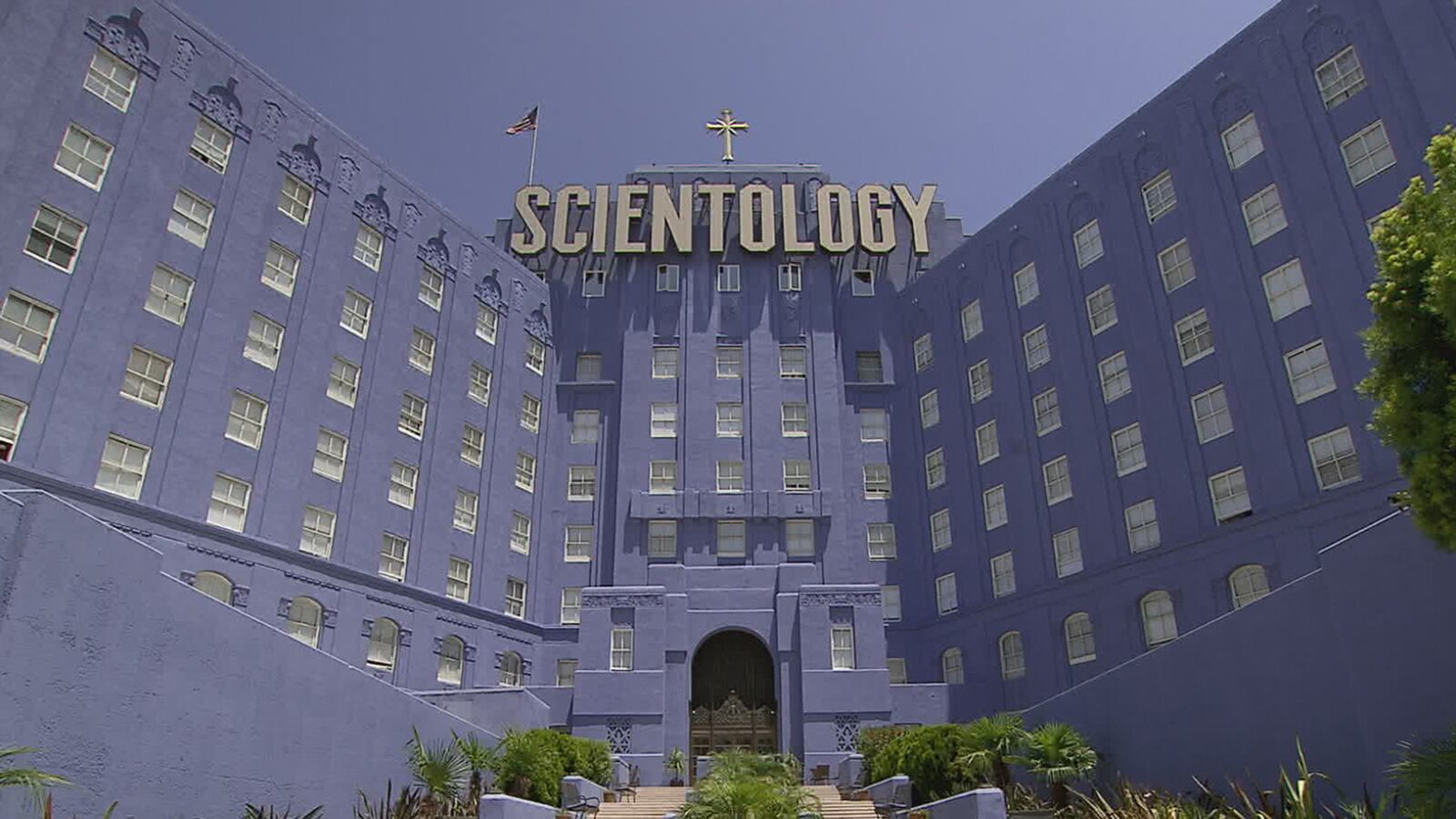When Oscar-winning documentary filmmaker Alex Gibney was putting the finishing touches on Going Clear—his expose of the Church of Scientology that premieres March 29 on HBO—he asked for permission from America’s broadcast and cable networks to use some of their Scientology-related material in his movie.
Even though he was willing to pay for the privilege, he says their answer was unanimous: No.
“One of the experiences we had,” Gibney said on Wednesday during a lunch with journalists at HBO’s Midtown Manhattan headquarters, “is that when we went to license footage from the major networks they all declined to license it to us for legal reasons…One of the reasons is that the Church is so litigious and so aggressive in threatening to keep stuff from being in the media.”
Gibney added: “I found that interesting…that this somehow was too perilous to touch, because the Church beats its breast and says, ‘If you show that material, we’re going to sue you.’”
The irony, Gibney said, is that when he was making Mea Maxima Culpa, the searing 2012 documentary about the 2,000-year-old, 1.2 billion-member Roman Catholic Church and its arrogant cover-up of priestly pedophilia, he had no trouble securing licenses from U.S. networks.
The 62-year-old Church of Scientology, by contrast, has an estimated 55,000 members worldwide (though it officially claims 10 million) and yet it is apparently more formidable than the Vatican.
This, after all, is a wealthy organization that, while banned as a fraudulent cult in Germany and restricted in operating in other countries, won U.S. designation as a legitimate religion—and tax-exempt status—from the Internal Revenue Service in 1993 after filing some 1,400 lawsuits against the nominally terrifying agency, many of them against IRS employees personally in a full-court press of intimidating tactics.
The Church dropped its litigation after the beleaguered IRS caved.
Concerning the networks’ decision to stiff him, “It was either intimidation or they did a risk-reward analysis,” Gibney told me. “I don’t know, because they wouldn’t tell us why except for ‘legal reasons.’ But I do find it interesting that I was able to license all sorts of clips about the Catholic Church but not things regarding the Church of Scientology. It shows the power of the Church’s litigious strategy to threaten lawsuits and get people to back down.”
Gibney said his complaint applies to “all” the U.S. networks, including CNN, where—ironically—he has placed several of his documentaries and is an executive producer of the CNN series Death Row Stories. Network spokespeople contacted by The Daily Beast declined to comment on Gibney’s allegations of spinelessness, but one person agreed to answer them if identified only as a “network news insider.”
“It’s silly,” this person said, describing Gibney as “a disgruntled, unhappy filmmaker who didn’t get the footage he wanted…We cover Scientology, and we do have archives that we keep exclusively for our own use, like all networks do. We don’t have to license footage.”
Still, Gibney didn’t sound particularly disgruntled, since the networks’ alleged timidity didn’t hamper his documentary, on which he collaborated with Pulitzer Prize-winning author Lawrence Wright, on whose book, Going Clear: Scientology, Hollywood, and the Prison of Belief, the film is based.
Despite the networks’ refusals, Gibney said, “We put it in anyway via ‘fair use’”—a free-speech doctrine that allows the limited use of copyrighted material, without obtaining permission from the copyright holder, for journalistic and other purposes.
Still, Gibney blames the media outlets for their apparent reluctance to anger Scientology officials and possibly provoke time-consuming and expensive court cases.
“I think they owe the public more rigor than that,” he said of the networks. “This is a subject that is of huge interest and importance.”
Gibney himself has felt the sting of the Church and its supporters for making his movie, including full-page newpaper ads attacking his integrity, a pro-Scientology video, ominously titled “Exterminating” Gibney’s Propaganda, and stacks of demand letters from high-powered law firms representing the Church and its adherents.
“I’ve got many cards and letters,” Gibney said with a grin.





